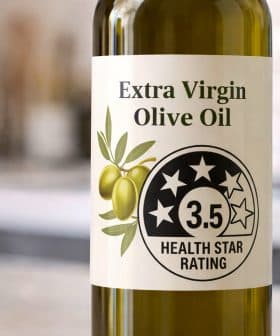Squalene in Virgin Olive Oil May Help Tissue Repair
Squalenes, a compound found in virgin olive oil, might help cicatrization and tissue repair according to a research study by the University of Jaén.
Research from the University of Jaén suggests that squalenes found in virgin olive oil can aid in tissue repair and wound healing by modulating proinflammatory macrophages. The study found that squalenes stimulate a switch from M1 to M2 macrophages, promoting anti-inflammatory signals and enhancing the healing process.
The role squalenes exert in the immunomodulation of proinflammatory macrophages suggests that this compound found in virgin olive oil might benefit tissue repair and the cicatrization of wounds.
This is the main finding of a research study undertaken by Spain’s University of Jaén to identify specific components of virgin olive oil that are responsible for its anti-inflammatory properties. This is an initial step to later ascertain whether they could be used to treat inflammatory diseases like Irritable Bowel Syndrome.
The conclusions of this study were detailed in the research article “Squalene Stimulates a Key Innate Immune Cell to Foster Wound Healing and Tissue Repair,” published in Evidence-Based Complementary and Alternative Medicine.
Squalene is the main minor compound of virgin olive oil, its main hydrocarbon and the major component of its nonsaponifiable fraction. It reacts against chemical, physical, bacterial, and exogenous stress signals, protecting the skin’s surface. The compound helps prevent skin damage and has anti-inflammatory properties which are presumed to be capable of preventing cancer, skin damage, and atherosclerotic lesions.
Virgin olive oils have high concentrations of squalene.
The study explored the role of squalenes exert on the proinflammatory responses of certain macrophages and concluded these are a natural product that might be beneficial at the last stage of wound closures because of their immunomodulation of macrophages. Macrophages are the main innate cells involved in repairing tissues and bringing inflammation to an end.
Two kinds of macrophages are involved in wound cicatrization: M1 and M2. M2 macrophages have anti-inflammatory properties and are key for the definitive healing of wounds. The interaction of M1 and M2 macrophages takes the healing process from infection to recovery; without squalenes, cicatrization will be deficient and tissue damage may occur.
According to the study, squalenes appear to act as a mediator in tissue remodeling and repair by promoting a switch from M1 into M2 macrophages, thereby recruiting immune cells and producing anti-inflammatory signals.
The study was led by José Juan Gaforio, professor of Immunology at the University of Jaén. Researchers from the University’s Center for Advanced Studies in Olive Groves and Olive Oils, and the Department of Preventive Medicine and Public Health of the University of Navarra also participated in the study.
A finding of the study was that squalene’s concentration levels may have an influence on how this compound behaves during the healing process. The report recommends to further study the behavior of squalenes in different concentrations to confirm if elevated squalene concentrations might be adverse, rather than beneficial.
Recently, squalenes have been used in several applications, including chemopreventive in several tumors. Years ago, the University of Jaén also conducted another study that suggested squalenes might help prevent breast cancer because they helped reduce oxidative damage upon epithelial cells.









